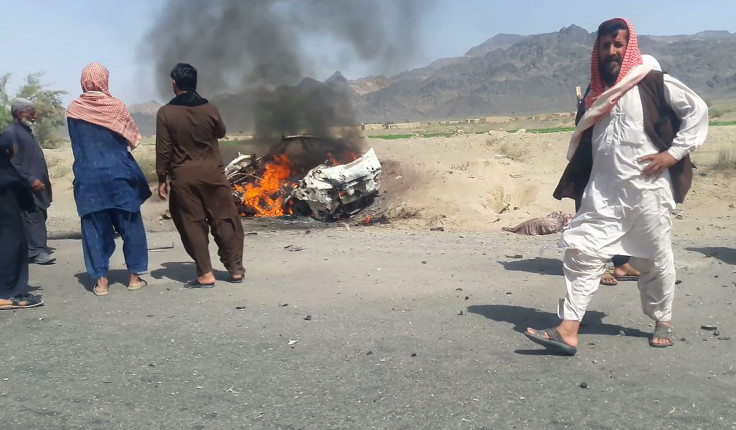Afghan Taliban Leader Mullah Akhtar Mansour Killed In US Drone Strike, Afghanistan Confirms

UPDATE 1:50 p.m. EDT — The Afghan Taliban Sunday confirmed a U.S. drone strike in Pakistan killed Mullah Akhtar Mansour, Agence France-Presse reported quoting sources.
“I can say with good authority Mullah Mansour is no more,” a source, described as senior, told AFP. The news agency said two other sources also confirmed Mansour’s death.
The sources named several possible successors to Mansour, including his deputy, Mullah Abdul Ghani Baradar, and the leader of the Haqqani network.
UPDATE: 12:29 p.m. EDT — Pakistan released a statement Sunday denouncing U.S. airstrikes that are believed to have killed Mullah Akhtar Mansour, the Afghan leader of the Taliban, reported Agence France-Presse. The airstrikes were a "violation of [Pakistan's] sovereignty, an issue which has been raised with the United States in the past as well," said the statement.
The statement was issued by Pakistan's Foreign Office and was critical of the United States for waiting until after the strikes to inform the country's prime minister and the chief of army staff, according to AFP. One of the victims was identified as driver Muhammad Azam, and the second is still "being verified."
Original Story:
Afghan Taliban leader Mullah Akhtar Mansour has been killed, Afghanistan’s National Directorate of Security confirmed Sunday afternoon after several hours of uncertainty. The Afghan intelligence agency said Mansour, who was officially named the group’s leader last year, was killed in an “airstrike” in a remote area in Balochistan in southwestern Pakistan Saturday.
Prior to that, Afghan President Ashraf Ghani also confirmed that Mansour had been targeted in a drone strike by the United States.
“Mullah Akhtar Mansour refused to answer repeated calls by the people and Government of Afghanistan to end the war and violence in the country. While sheltering himself in hideouts outside Afghanistan, he was also involved in deception, concealment of facts, maiming and killing innocent Afghans, terrorism, intimidation, drug smuggling as well as obstruction of development and progress in Afghanistan as he obstinately insisted on continuing the war,” the Afghan president’s office said in a statement Sunday. “In the event of Mullah Mansour’s killing, a new opportunity presents itself to those Taliban who are willing to end the war and bloodshed, return to the country from the foreigners’ land, and join the Afghan-owned and Afghan-led peace process.”

Under Mansour’s leadership, the Taliban not only shunned peace talks with the Afghan government, it also escalated attacks in and around the capital city of Kabul and the restive province of Helmand, where the group is believed to have recaptured large swaths of territory.
“Since the death of Mullah Omar and Mansur's assumption of leadership, the Taliban have conducted many attacks that have resulted in the death of tens of thousands of Afghan civilians and Afghan security forces as well as numerous U.S. and coalition personnel,” the Pentagon said in a statement released Saturday.
Mansour’s death has the potential to reignite an internal conflict over the Taliban’s leadership. Last year, after the group announced the death of Mullah Mohammed Omar and admitted it had covered up the news for over two years, it triggered a power struggle that eventually derailed peace talks with the Afghan government.
One of Mansour’s two deputies — Sirajuddin Haqqani, who heads the militant group Haqqani Network, and Haibatullah Akhund, a cleric who formerly headed Taliban courts — may now be asked to take on the mantle. However, it is not yet clear if Omar’s brother Mullah Abdul Manan Hotak, his oldest son Mullah Muhammad Yaqoub, and senior Taliban leaders who alleged that the Supreme Council (Shura) was not consulted before Mansour’s appointment, would accept Haqqani or Akhund as the group’s new leader.
Although the Afghan Taliban is yet to release an official statement about Mansour’s death, a senior Taliban commander, Mullah Abdul Rauf, told the Associated Press that Mansour had been killed in an airstrike late Friday “in the Afghanistan-Pakistan border area.”
© Copyright IBTimes 2025. All rights reserved.






















